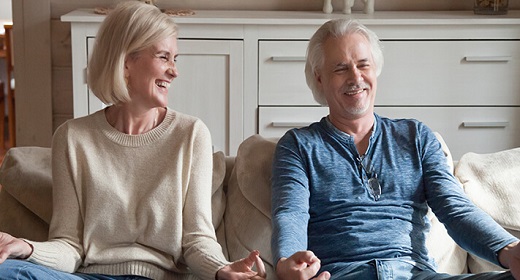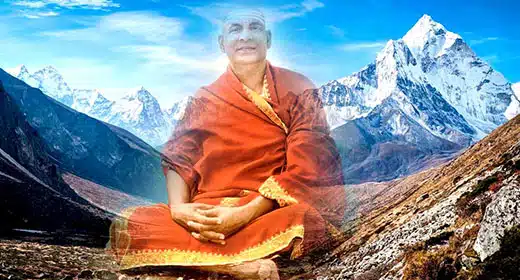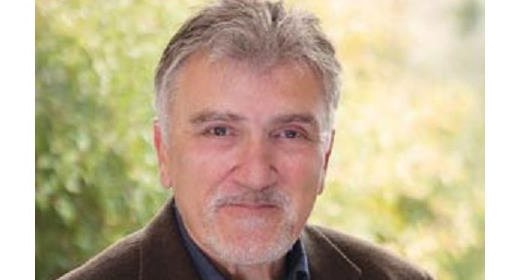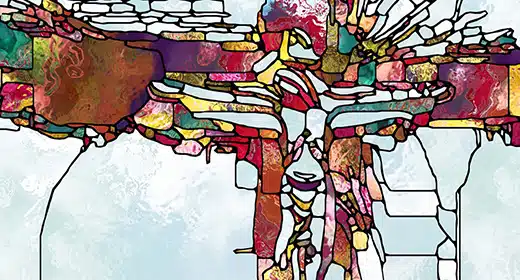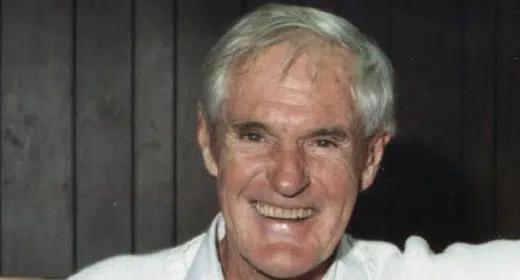by Shunryu Suzuki: This lecture is reprinted from the July 2001 Berkeley Zen Center Newsletter.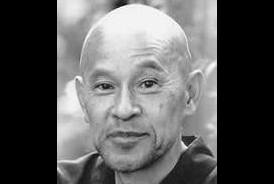
I don’t know if you have the actual feeling of true practice. I don’t know because when I was young and practicing zazen, I did not know what it was. Although I had some feeling for the practice, it was difficult to talk about the feeling. The feeling made no sense even though I was very impressed by the practice.
I wanted to put some order into those experiences, but that is not possible. I thought I understood a certain amount one year and that next year I would understand a little bit more. This is what people call “stepladder Zen.” This kind of practice doesn’t make much sense. Maybe after you try stepladder practice, you may realize that it is a mistake since practice and enlightenment are one.
If you don’t have some actual feeling of practice, that is not practice. Even though you sit in the right posture, follow your breath, and follow all the instructions that are given to you, this still may be empty zen. This is because even though you are following the instructions, you are not kind enough to yourself. Just to follow your breathing doesn’t make sense. If you are very kind with your breaths, one after another, then you will have a refreshing, warm feeling with your zazen.
Perhaps we are not kind enough with ourselves, with our practice. If you don’t feel Buddha’s mercy in your practice, on your body and breathing, there is no warm feeling and it is not satisfying zazen. You should be fully satisfied with your practice. You should be very kind to yourself; then naturally you will feel satisfaction.
A mother will take care of her children even though she has no idea of how to make her baby happy. Similarly, when you take care of your posture and your breathing, there should be some warm feeling in it. When you have a warm feeling in your practice, that is actually a good example of the great mercy of Buddha. And whether you are a priest or a layperson, this practice will extend to your everyday life. When you take utmost care of what you do, then you feel good.
Tozan Ryokai attained enlightenment many times. Once when he was crossing a river, he saw himself reflected in the water and said, “Don’t try to figure out what you are. If you try to figure out what you are, what you understand will be far from you. You should not have even an image of yourself.” Actually you are in the river. You may say this is just a shadow or a reflection of yourself, but if you see carefully with a warm-hearted feeling, this is you. You may think you are warm-hearted, but when you try to understand how warm, you cannot actually measure the temperature of your feeling. Yet when you see yourself in the mirror or in the water with this warm feeling, this is actually you. And whatever you do, you are there.
You don’t have to seek for where the Bodhisattva of Wisdom, Manjushri is or what he is doing. When you have good practice in your everyday life, there is Manjushri, and there is true you, real you. Don’t say Manjushri is here or there, or in the middle of the zendo. When you do things with your warm-hearted mind, that is actual practice. That is how to take care of things, and that is how to talk with people.
Some of you are priests or monks and some of you are not, and each of you will have your own way to go. Those who are not married and those who have married both have their ways of extending practice to everyday life. Although our situations are different, practice is just one, and we all meet Manjushri. Even though he is one, he is everywhere, with everyone, and with things. Whatever you do, whatever practice you are involved in, there is Manjushri. The secret is not to forget the true mercy of Buddha who takes care of everything. If we lose this point, whatever you do doesn’t matter.
So we put emphasis on warm heart, warm zazen. The warm feeling we have in our practice is, in other words, enlightenment, Buddha’s mercy or Buddha’s mind. It is not a matter of just counting or following your breath. Counting breath is tedious. So maybe it is better to just follow your breath. This is easier and less of a disturbance to your practice. But the point is, one after another, inhaling and exhaling, take care of your breath, just as a mother may watch a baby. If a baby smiles, its mother may smile. If a baby cries, its mother is worried. That kind of close relationship, that being one with your practice, is the point. I am not talking about anything new – the same old things!
When your practice improves, and you have good control over your desires and your everyday life, then you will have big freedom from everything. That is the goal of our practice, both for priests and for lay people.
Take care of your practice. Be very kind with yourself.

